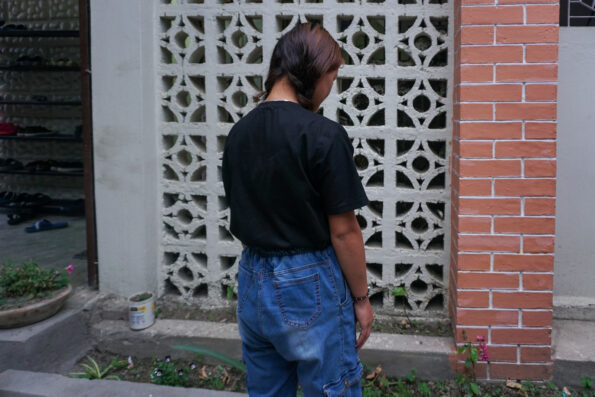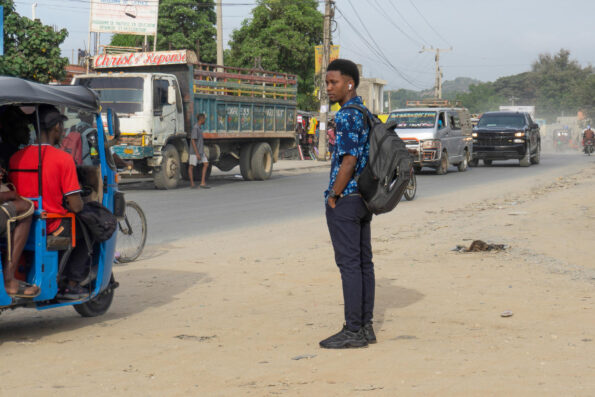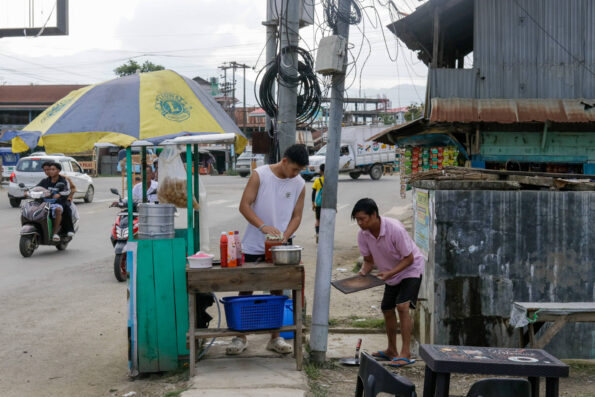
Nakisanze Segawa, GPJ Uganda
Sophie Namaganda was repatriated to Kampala in 2018 after a vicious attack by her employer in Saudi Arabia left her with a broken leg and arm, and seven missing teeth.
KAMPALA, UGANDA — When Sophie Namaganda regained consciousness, she found herself in a hospital bed with a broken leg and arm. Seven of her teeth were missing. She couldn’t move.
It was April 2018, two weeks into Namaganda’s job as a maid for a family of six in Riyadh, the capital of Saudi Arabia. The 22-year-old had swapped the dense suburbs of Kampala, the Ugandan capital, for the high-rises of the wealthy Gulf state with a clear goal: work hard, save money and build a house for her mother and toddler in Uganda.
A vicious attack upended her plan. “I was mopping the floor when I suddenly felt her pulling my veil from behind me. I was choking,” says Namaganda, describing the moments before an unexpected assault by her boss. In trying to free herself, she says, Namaganda fell out of a third-floor balcony.
Her ordeal is far from an exception in Saudi Arabia, where the inhumane treatment of migrant workers has been widely documented by the New York-based advocacy group Human Rights Watch. In the last decade, tens of thousands of Ugandan women have officially migrated to the Middle East to work as housemaids and send money to families back home. An unknown number also have been trafficked or smuggled in to work.
In 2016, the mounting reports of abuse prompted Uganda to ban women from working as maids in Saudi Arabia and Jordan. The rules were relaxed a year later after the nations reached new agreements over worker protections. But more cases of exploitation have since surfaced, and the government recently announced a review of its bilateral treaties.
Existing provisions, after all, did nothing to help workers like Namaganda. She didn’t see her bosses after the assault. While at the hospital, she believed she’d be transferred to a new employer. But upon discharge, seven weeks later, she was escorted by police directly to the airport and put on a flight to Kampala.



Violet Mbabazi, director of Provio International, Namaganda’s recruitment agency in Uganda, says they investigated the incident with their Saudi Arabian partners, but the police found no proof of friction between Namaganda and her employer. “We don’t have any evidence that she was harassed,” Mbabazi says. Namaganda’s repatriation and medical fees in Saudi Arabia were paid by her employer, Mbabazi adds, while Provio is covering her ongoing medical expenses in Uganda.
Last year’s Black Lives Matter protests in the United States sparked discussions about systemic discrimination against black communities in the Gulf nations too. Enid Nambuya, executive director of the Uganda Association of External Recruitment Agencies, a body representing agencies that send workers overseas, thinks racism is driving abuse.
“Our workers are discriminated against because they are black,” Nambuya says. “Some of these abuses will stop when a black person is treated right.”
Shakira Namusisi agrees, to an extent. Three years ago, the 27-year-old paid $400 to people-smugglers for passage to Oman, via Kenya, to work as a housemaid. The official route took too long, she says, and she was desperate for money. But once in Oman, Namusisi was plunged into isolation.
She says she didn’t know what city she was in. Her bosses restricted access to her phone. Often, she didn’t know what day it was. A few weeks into the role, her employer’s youngest son began to rape her, she says. His three older brothers sexually abused her too. Namusisi, her family’s main breadwinner, endured their attacks for nine months. And she says it was only after she contracted chlamydia that her boss repatriated her to Uganda.
“I didn’t make an official complaint because I didn’t think I’d be helped,” Namusisi says. “My only wish is that those boys are punished for the things they did to me. But I know that will never happen because, in that country, I was looked at as semi-human.”
Namusisi identifies the racism behind her abuse. But she also thinks there is much more Uganda could do to protect women from taking her path.
“The government needs to create jobs for young people,” says Namusisi, between serving customers at the small grocery store she opened with her savings from Oman. Stronger anti-trafficking measures also would stop women from being recruited for jobs overseas, she adds.
At first, the coronavirus pandemic slowed migration to the Middle East. But the numbers are rising again, according to the Ministry of Internal Affairs. Every day, an estimated 300 Ugandan women travel to Gulf nations, where they earn between $200 and $500 per month, a fortune compared to Uganda, where domestic workers earn up to around $40 monthly.
The government is trying to improve its regulation of Ugandan labor agencies, says Milton Turyasiima, assistant commissioner of employment services at the Ministry of Gender, Labour and Social Development. He also stresses that structures already are in place for overseas workers to contact their recruitment agency, the Ugandan labor ministry or the Ugandan Embassy if they face trouble.
His words ring hollow to returnees. Namaganda understood little of what the Saudi Arabian police said when they took her statement. She says she had never heard of the Ugandan Embassy, let alone how it might assist her. And she never once thought she could pursue a complaint.
“Justice might be impossible because citizens of the Saudi Arabian government and those of other Middle Eastern countries are protected by [their] laws,” concedes Fred Moses Mukhooli, an officer at Uganda’s Ministry of Foreign Affairs. But he says returnees should contact his ministry to explore what compensation could be pursued for their injuries and unpaid wages.
The Saudi Arabian Embassy in Kampala didn’t respond to multiple requests for comment.
One Ugandan initiative, launched in partnership with the recruitment agencies association, is providing former workers with some support. Since 2018, a residential center in the central Ugandan city of Entebbe has offered counseling to returning migrants who have experienced trauma overseas. So far, its psychologists have treated 380 women, including Namaganda earlier this year.
“The center has helped to restore my hope, in believing I wasn’t alone,” Namaganda says. “But I am left with a pain of knowing that nothing happened to the woman who did this to me,” she says, lifting her dress to show the long scar that still runs down her right leg.
Nakisanze Segawa is a Global Press Journal reporter based in Kampala, Uganda.
Beatrice Lamwaka is a Global Press Journal reporter based in Kampala, Uganda.
TRANSLATION NOTE
Nakisanze Segawa, GPJ, translated some interviews from Luganda.









